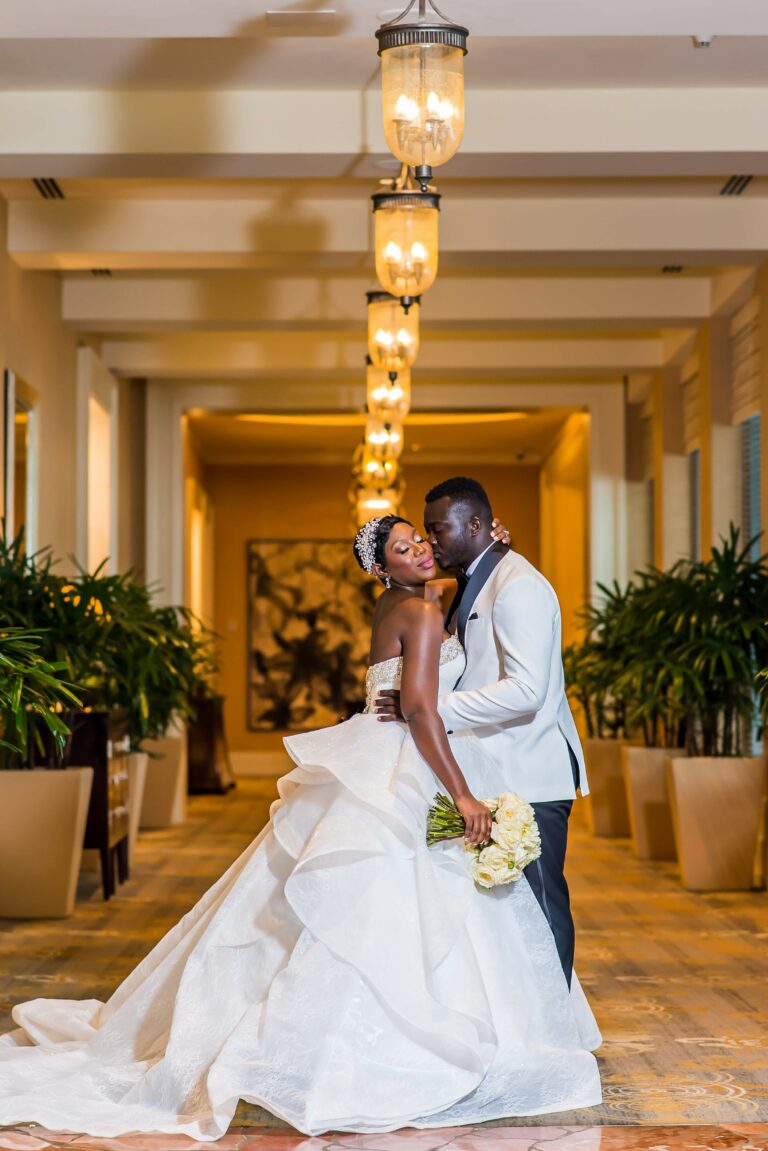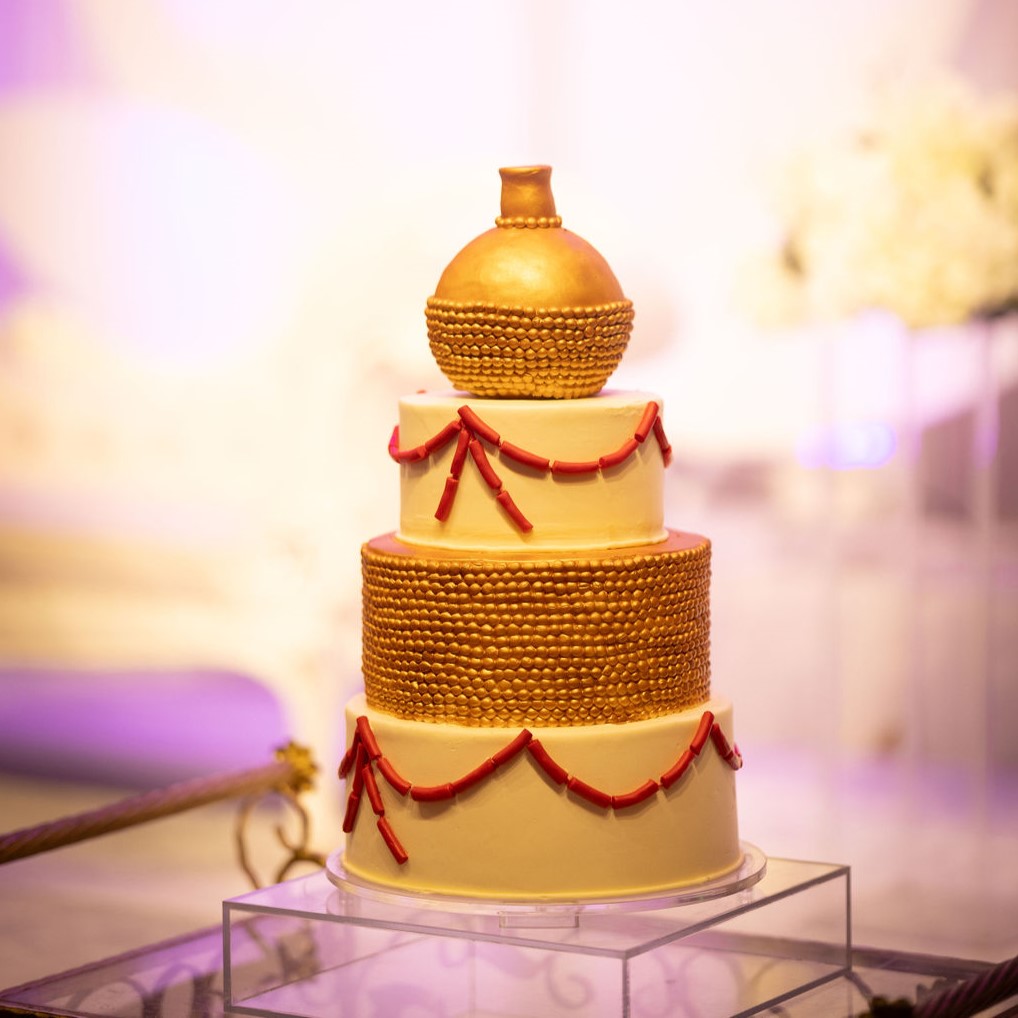
Nigerian weddings are renowned for their cultural richness and splendor, reflecting a vibrant display of traditions and rituals. These celebrations are not only a union of two individuals but also a fusion of family and culture.
In this blog post, we delve into the significance of the Nigerian wedding cake within the broader context of Nigerian wedding ceremony traditions. Our journey will take us through its historical background, symbolic meanings, planning tips, and the cake-cutting ceremony. So, let’s explore this sweet tradition together!
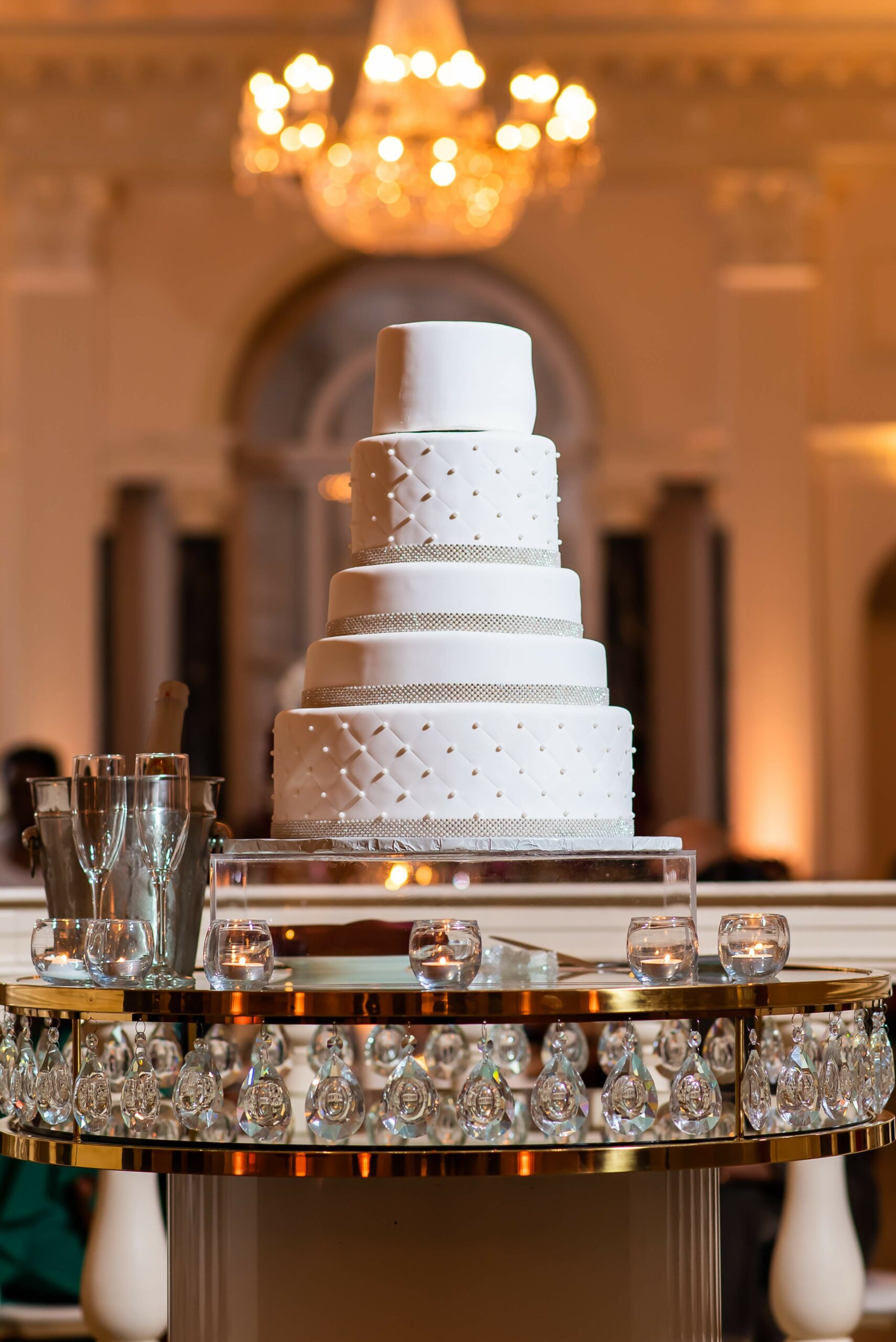
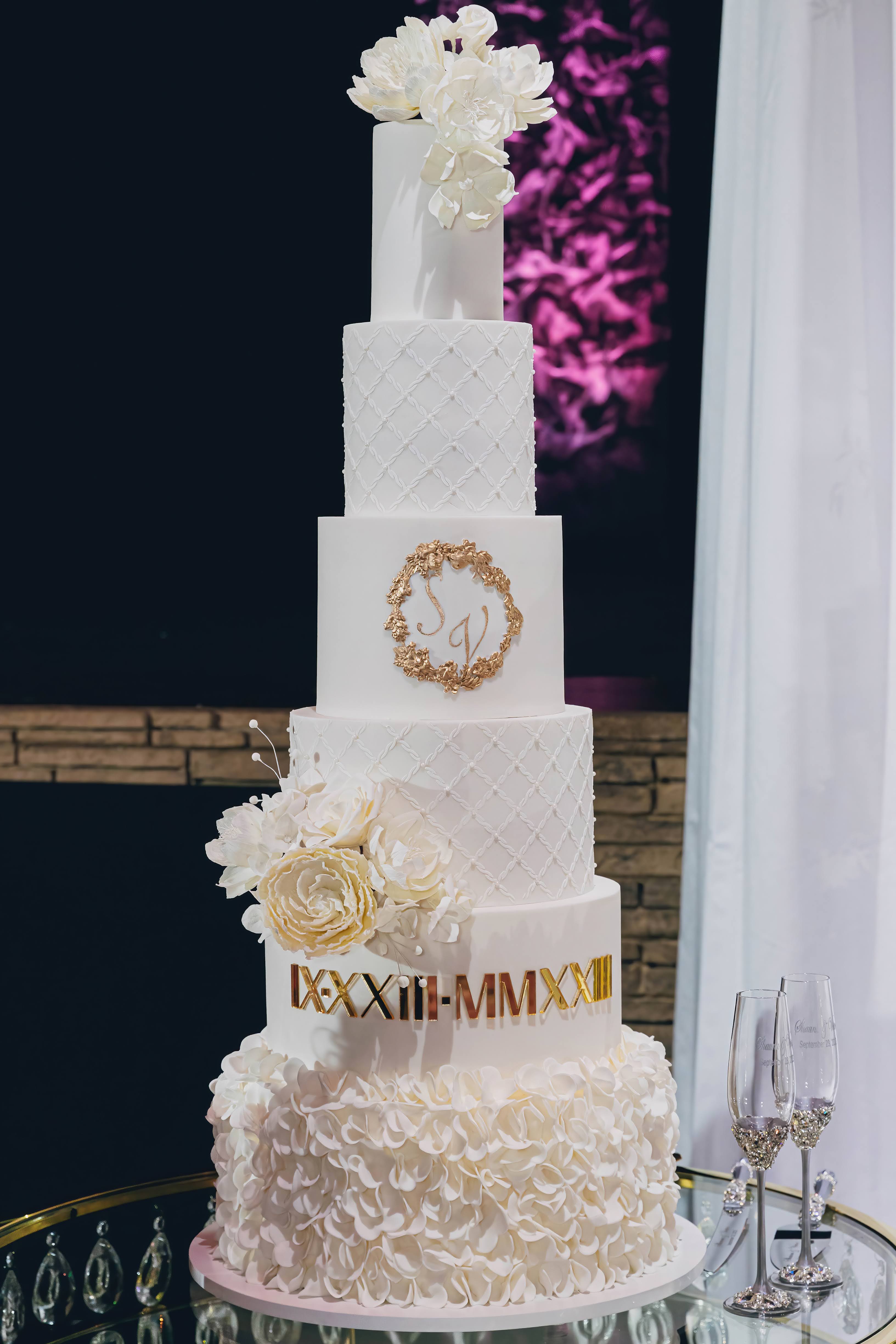
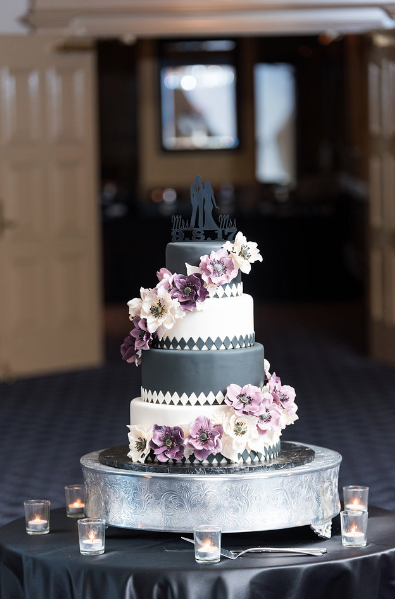
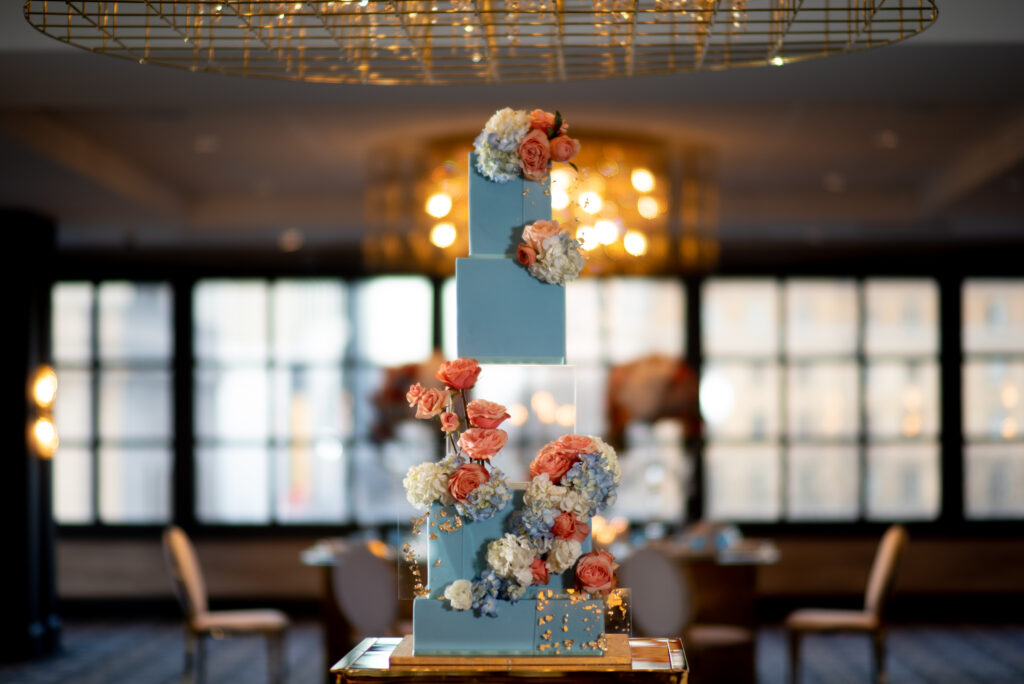
Historical Background of the Nigerian Wedding Cake
The Nigerian wedding cake’s origins and historical evolution are as fascinating as the culture itself. The concept of the wedding cake in Nigerian culture is heavily influenced by different cultures and colonial history. Traditionally, wedding celebrations in Nigeria included various local delicacies, but the concept of a grand wedding cake was introduced during the colonial era. Over time, the tradition has evolved, transitioning from simple, locally-made cakes to elaborate, multi-tiered masterpieces that are both a feast for the eyes and the palate.
Symbolism and Cultural Significance of the Nigerian Wedding Cake
In Nigerian culture, the wedding cake is more than just a dessert; it’s a symbol of prosperity, fertility, and celebration. Each slice shared signifies unity and the sweet journey the couple is embarking on together. The cake-cutting ceremony often involves the couple feeding each other, symbolizing their commitment to provide for one another. In some cultures, a tier or piece of the cake is saved and handed to the parents of each side of the family, symbolizing the joining of two families and their continuous blessings.
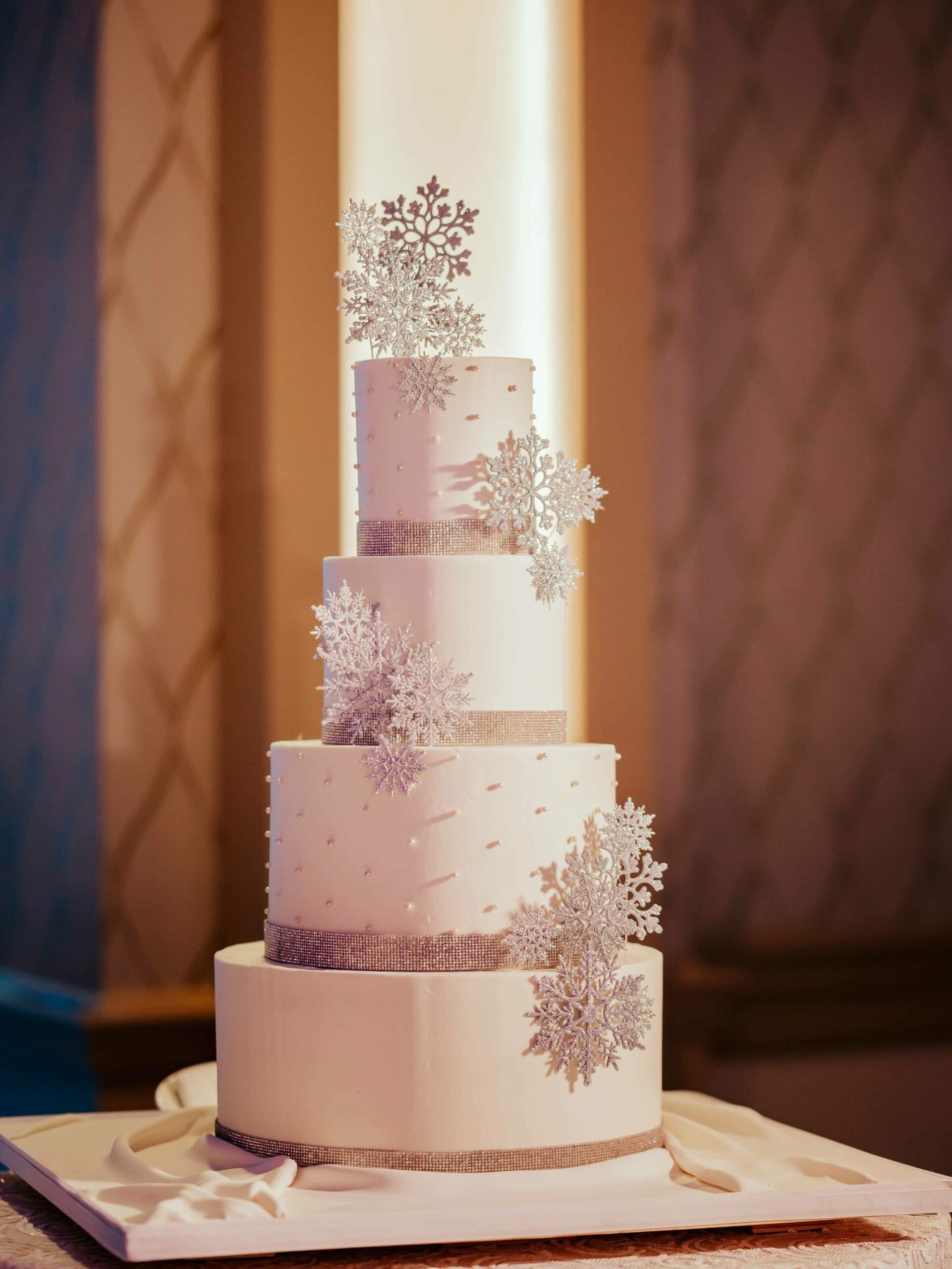
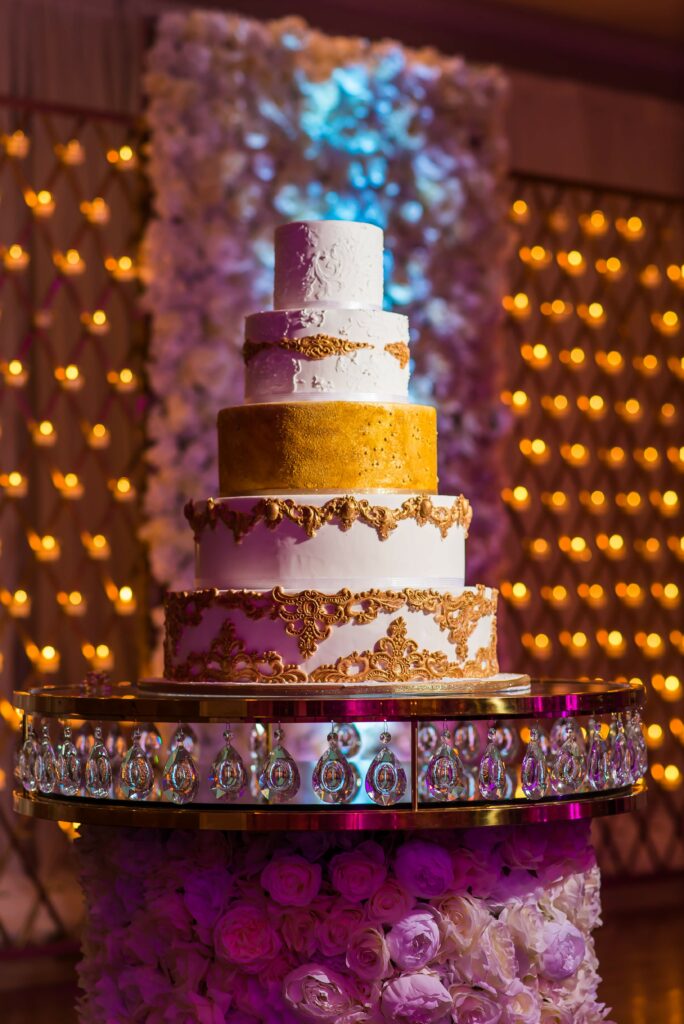
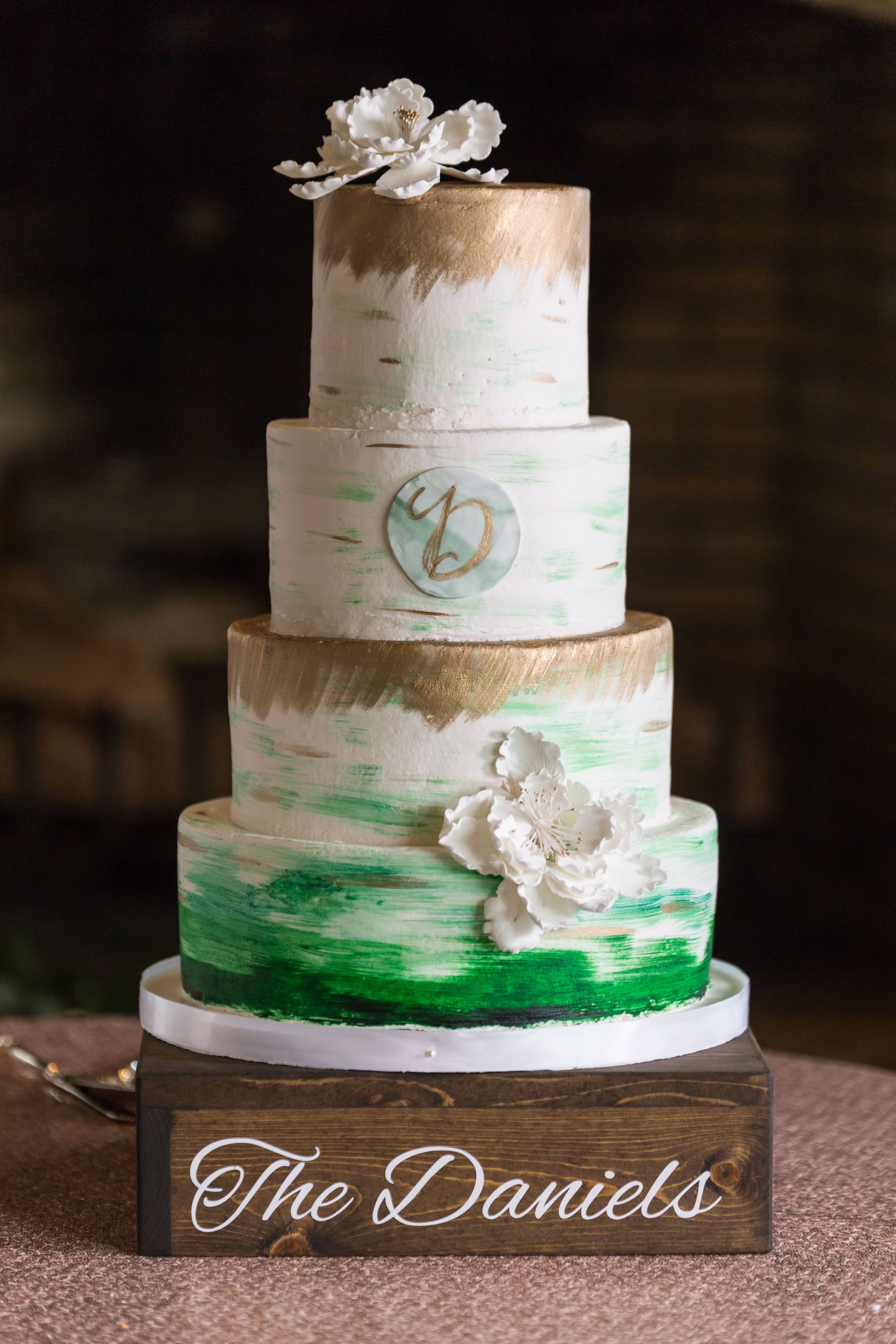
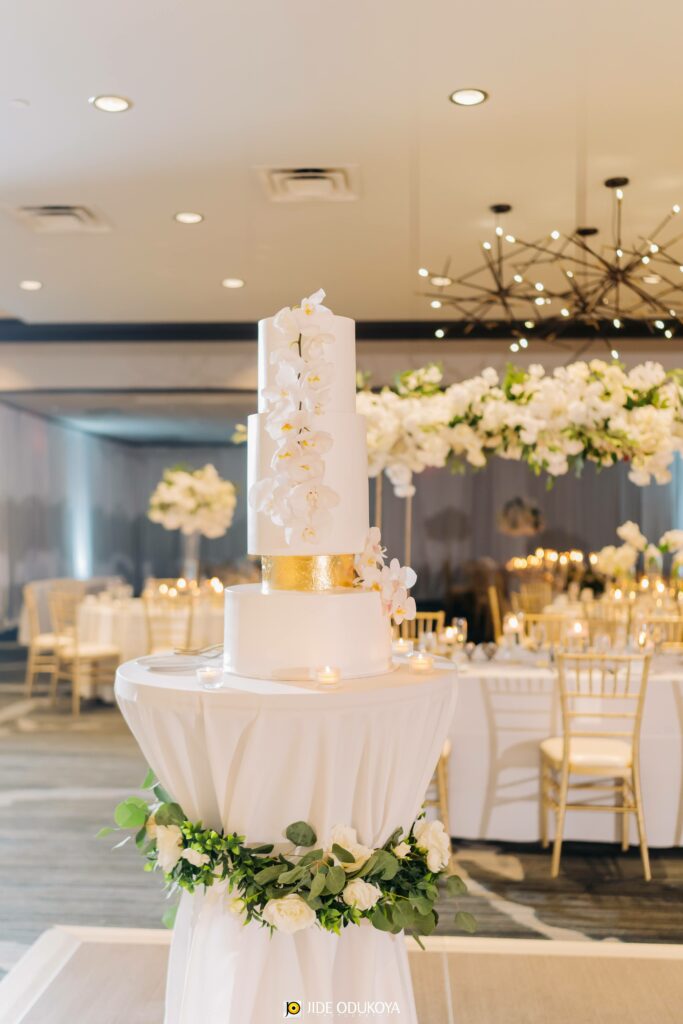
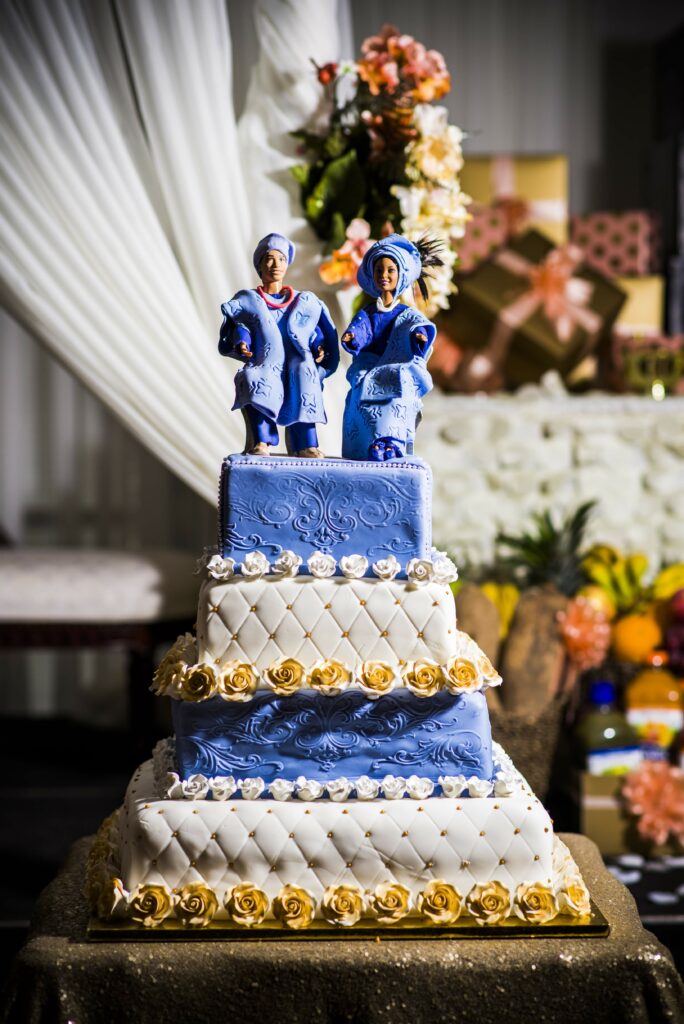
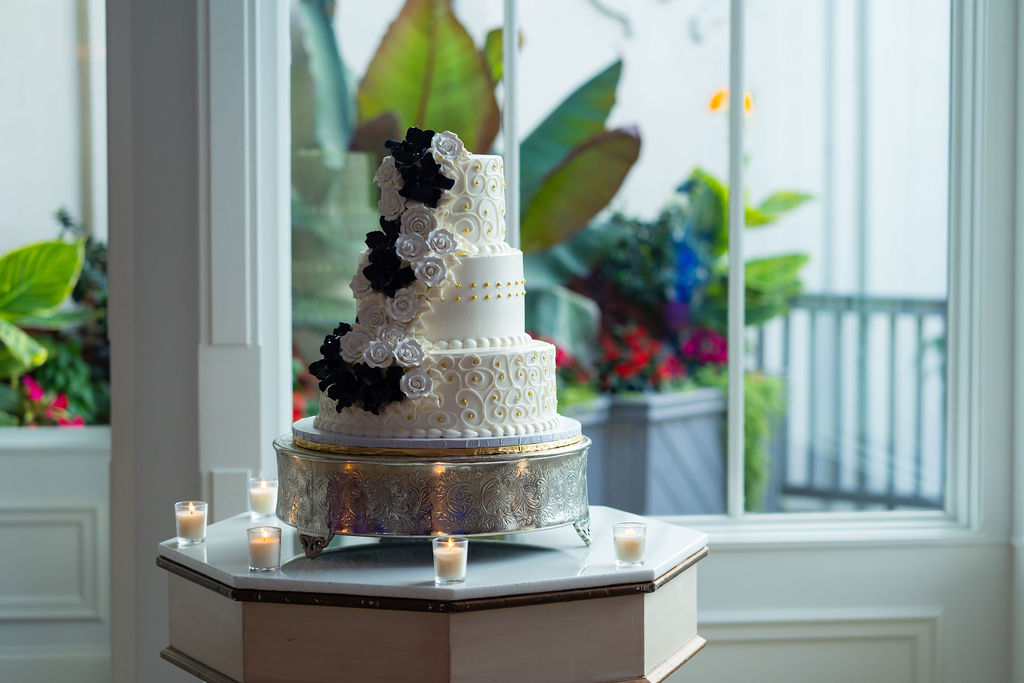
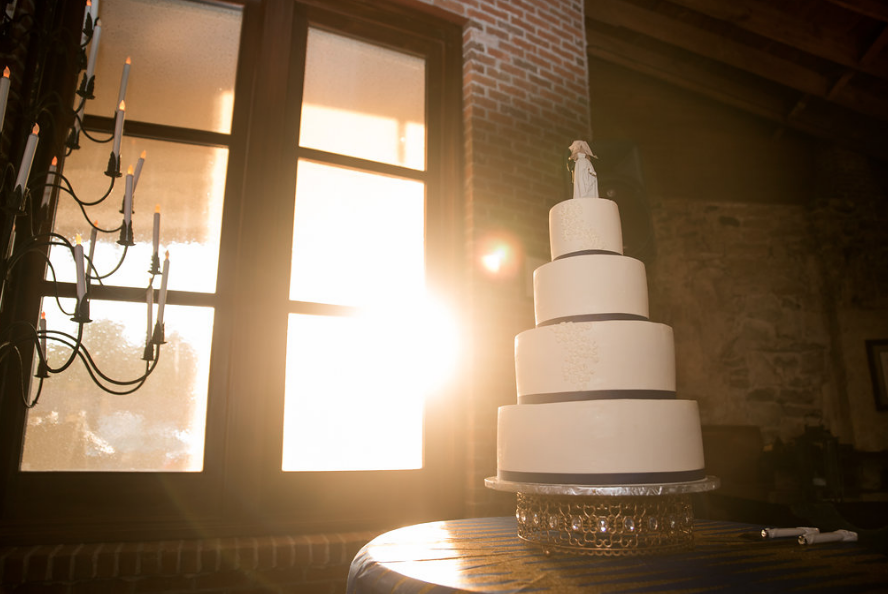
Traditional vs. Modern Nigerian Wedding Cakes
Traditional Nigerian Wedding Cakes:
- Common Designs:The designs are deeply rooted in cultural motifs and decorations, with common designs including pillows, suitcases, coral beads, and gourds, especially in Igbo weddings.
- Cultural Motifs and Decorations: These cakes are adorned with intricate designs that reflect the couple’s heritage and family traditions. Each element, from the choice of colors to the specific decorations adds to the overall design of the wedding.
Contemporary Nigerian Wedding Cakes:
- Fusion of Traditional Elements with Contemporary Aesthetics: Today’s couples often blend traditional motifs with modern design techniques, creating cakes that are both culturally significant and visually captivating.
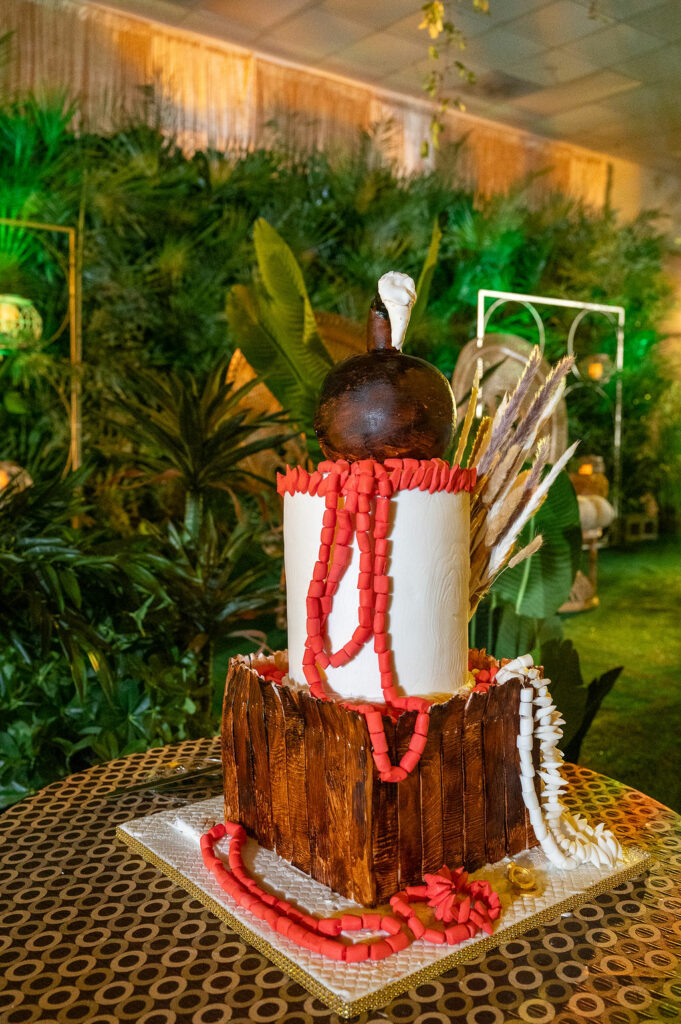
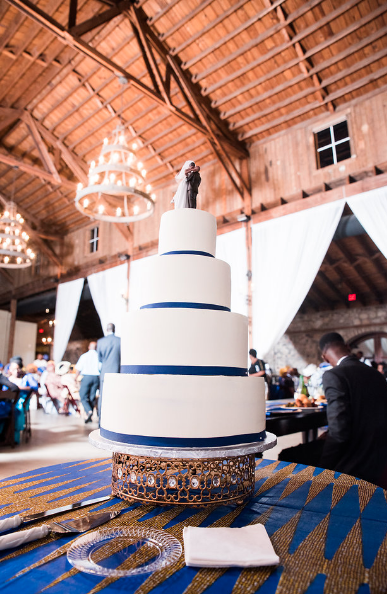
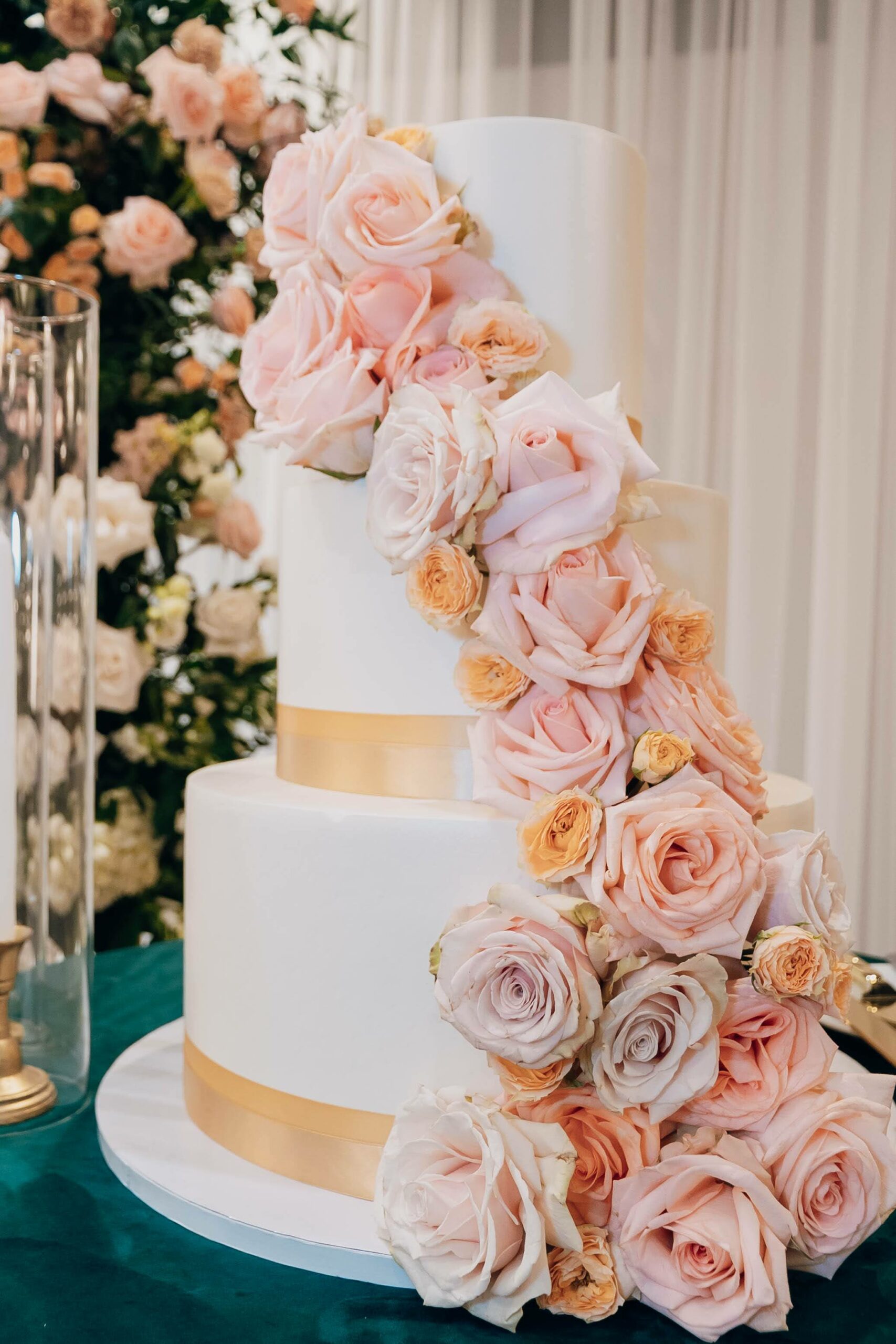
Planning and Designing the Perfect Nigerian Wedding Cake
Tips for Choosing the Right Wedding Cake:
- Factors to Consider: Taste, design, cultural elements, and budget are crucial factors. Early planning and thorough research are essential to ensure that every detail aligns with the couple’s vision and cultural heritage.
- Determining How Many Servings: Although cake is incorporated into weddings and other social gatherings, sweet and decadent desserts are not the norm in our culture. Also, more mature guests often want to watch their sugar intake. With that said, we always advise not having a 1:1 ratio for the amount of guests attending the wedding. A good ratio to keep in mind is to have enough servings for 50-60% of your guests. Otherwise, you may have a lot of cake wasted. We suggest closer to 60% if you are planning on saving the top tier of your cake.
Collaborating with Professional Cake Designers and Bakers:
- Finding a Baker Experienced in Nigerian Wedding Cakes: Not every baker can sculpt specific cultural designs like suitcases, pillows, and other motifs. It’s important to find a professional who can execute these designs.
- Communicating Your Vision and Preferences Effectively: Clear communication with your baker is key. Share your ideas and include images and color swatches for any cultural elements you want to incorporate.
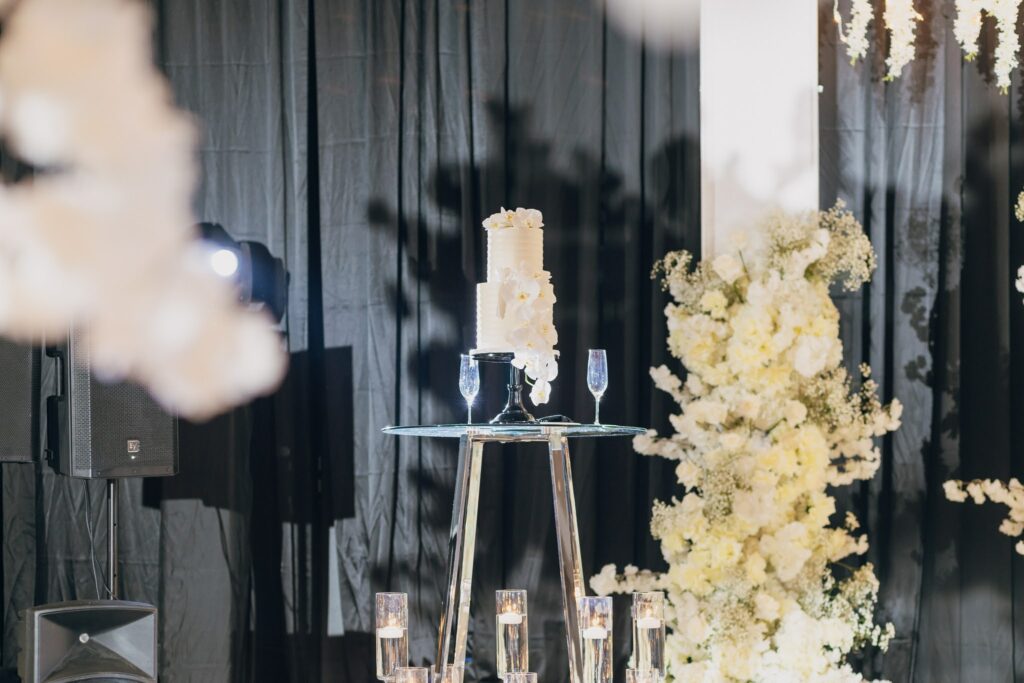
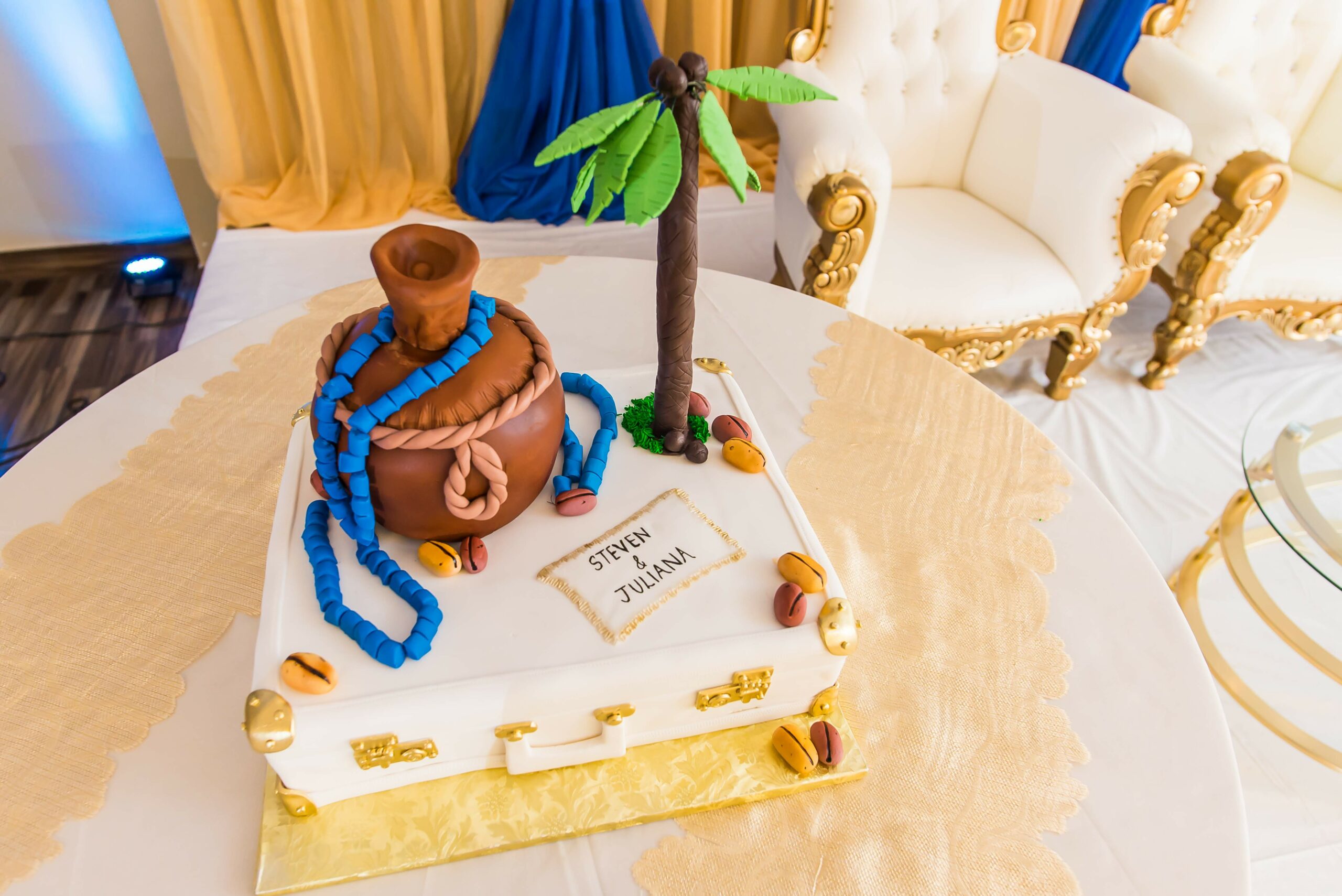
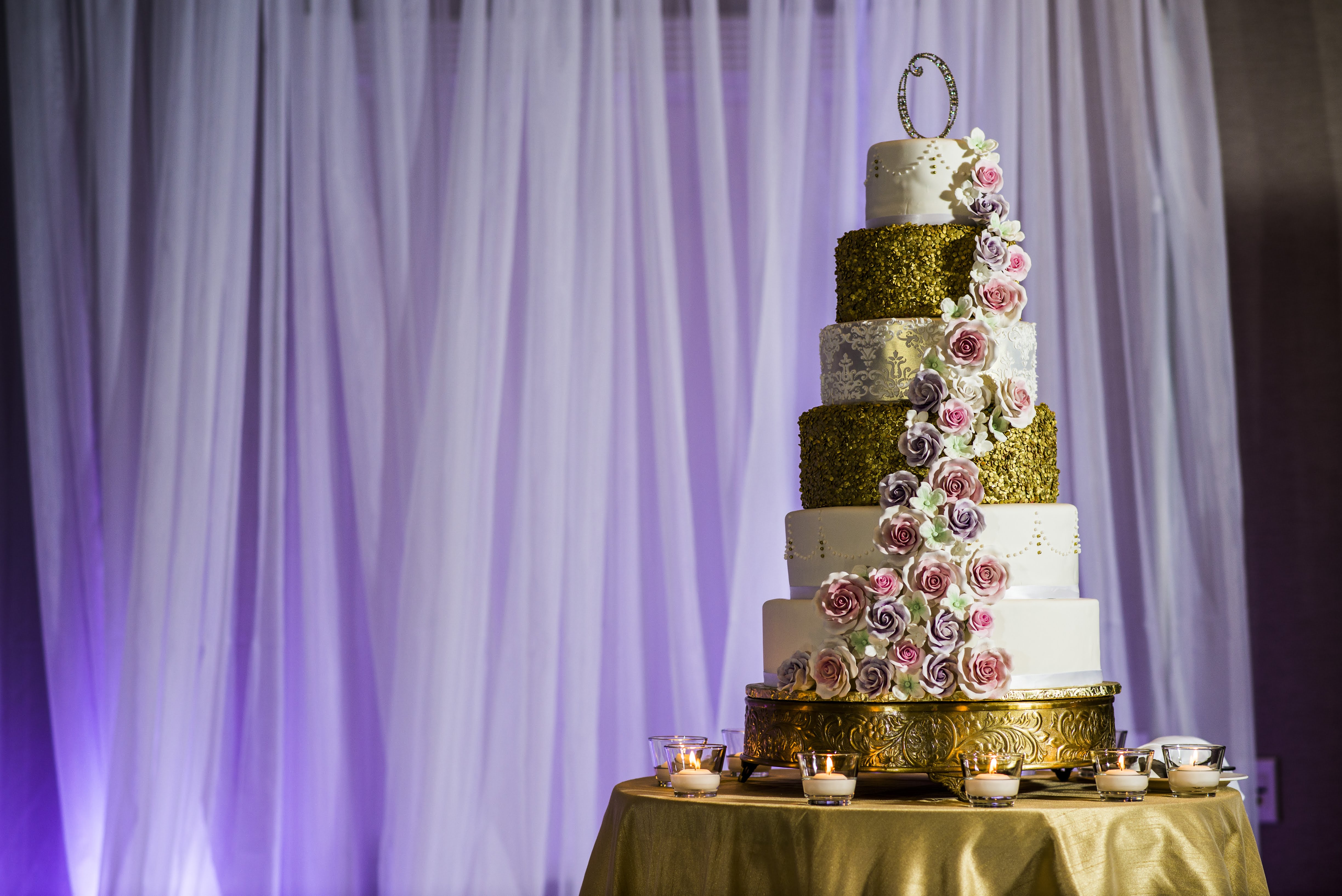
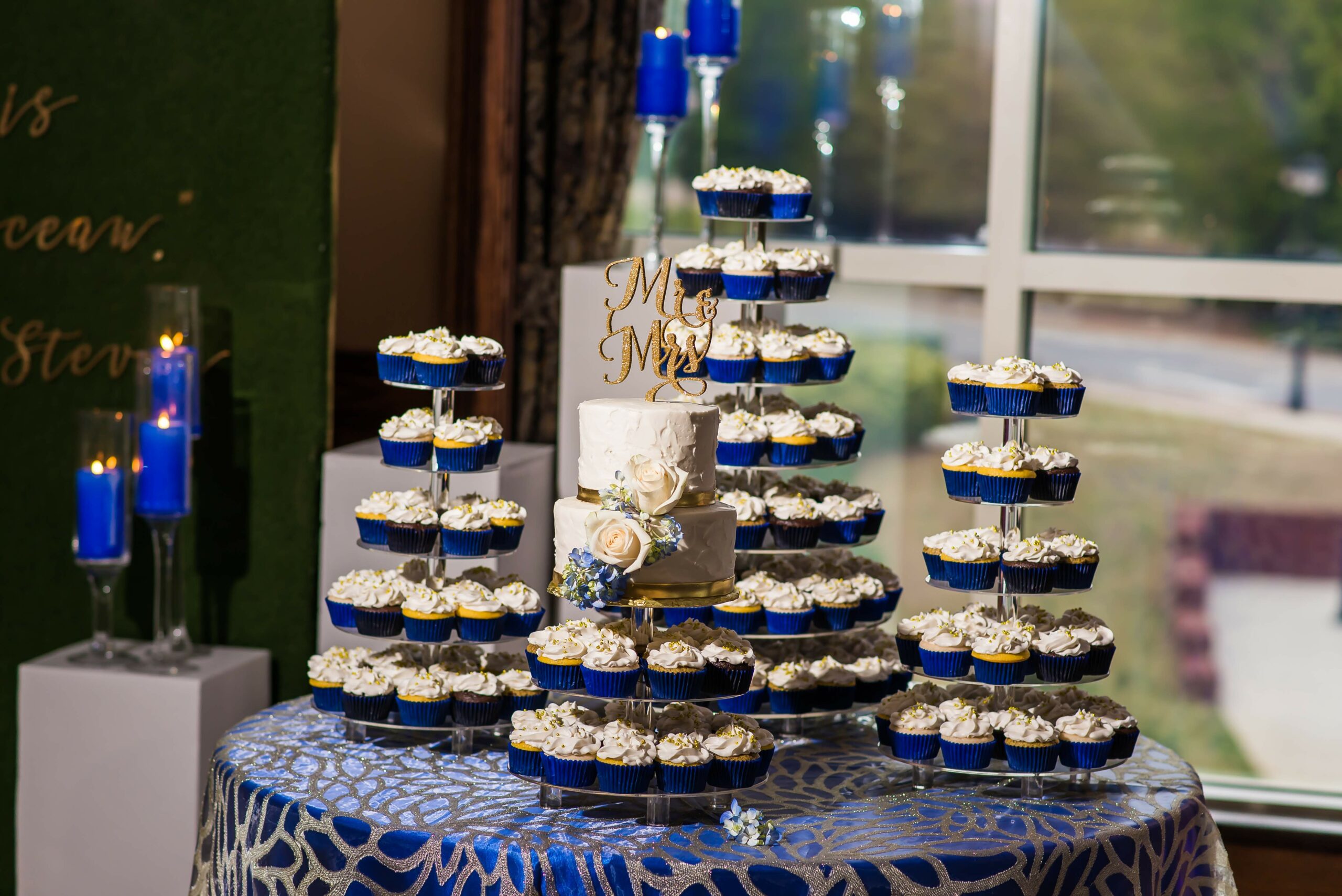
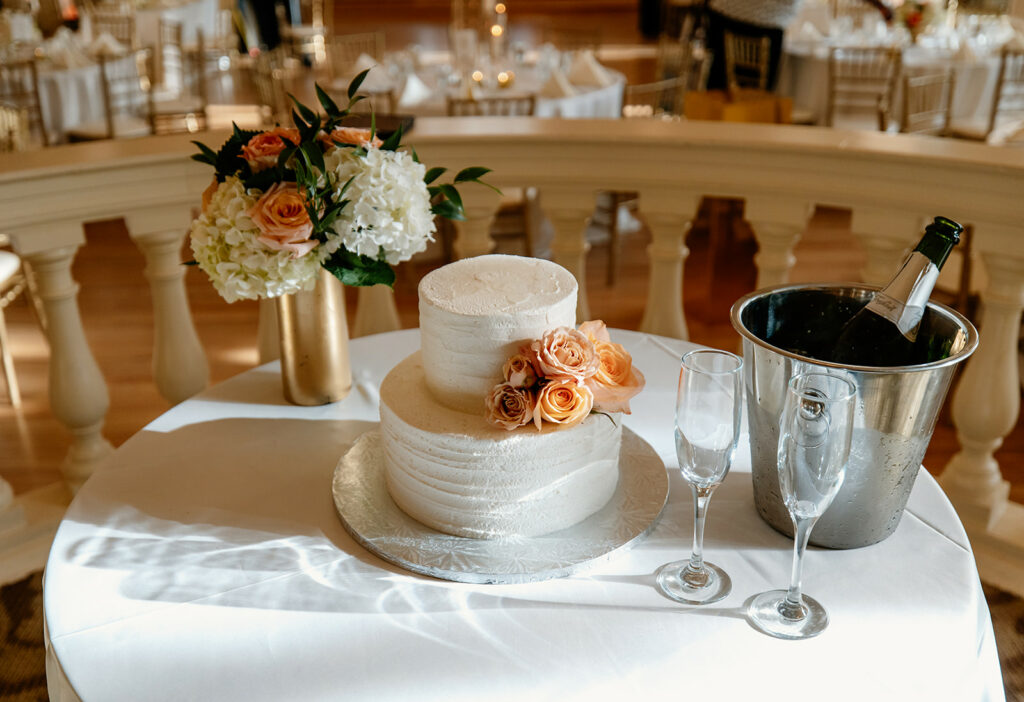
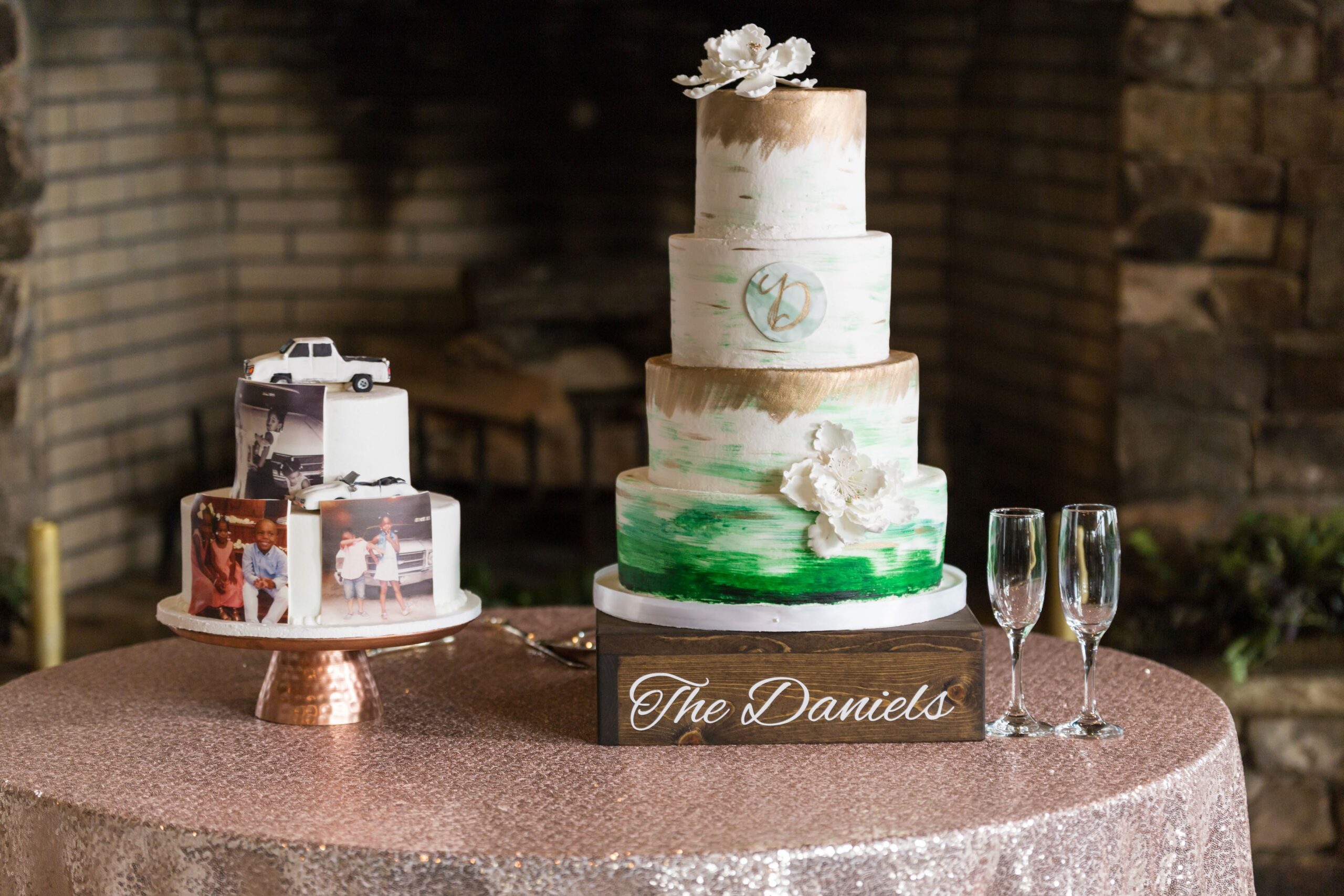
Customizing the Cake:
- Incorporating Cultural Symbols, Colors, and Motifs: Personalize your cake by adding symbols and motifs that reflect your cultural heritage and personal story.
- Adding Personal Touches to Reflect the Couple’s Story and Heritage: Every couple has a unique love story. Incorporate elements that tell your story and celebrate your journey together.
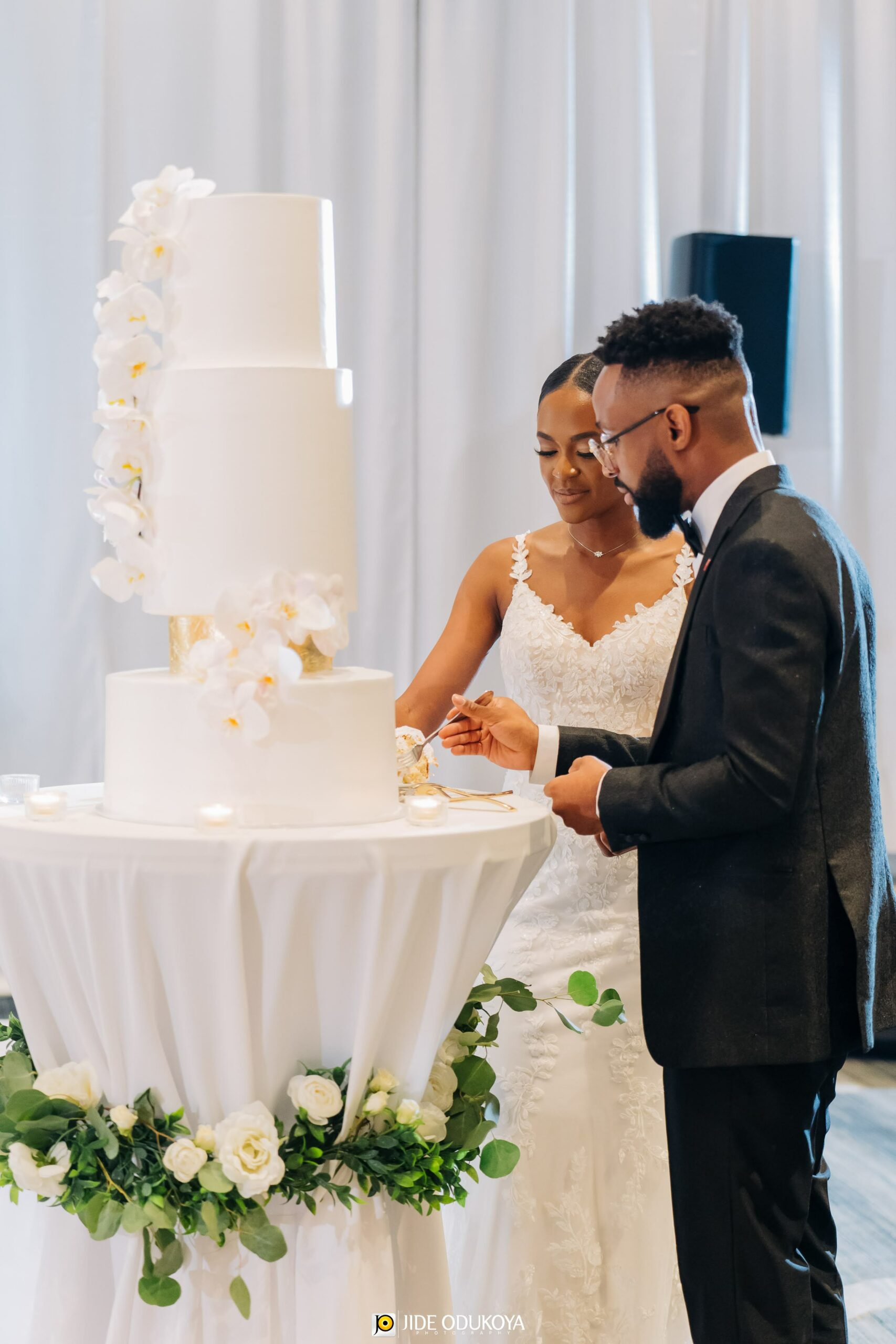
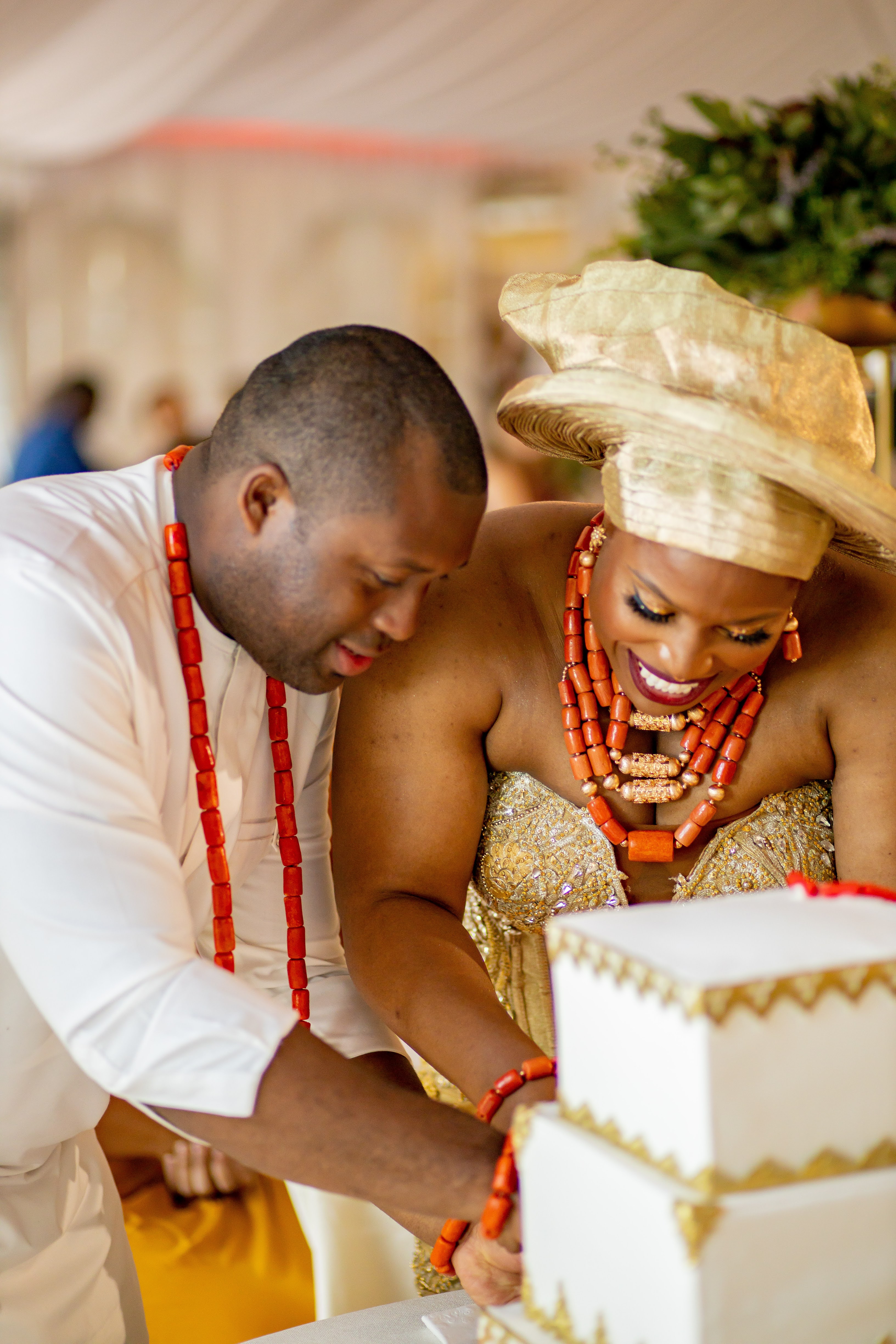
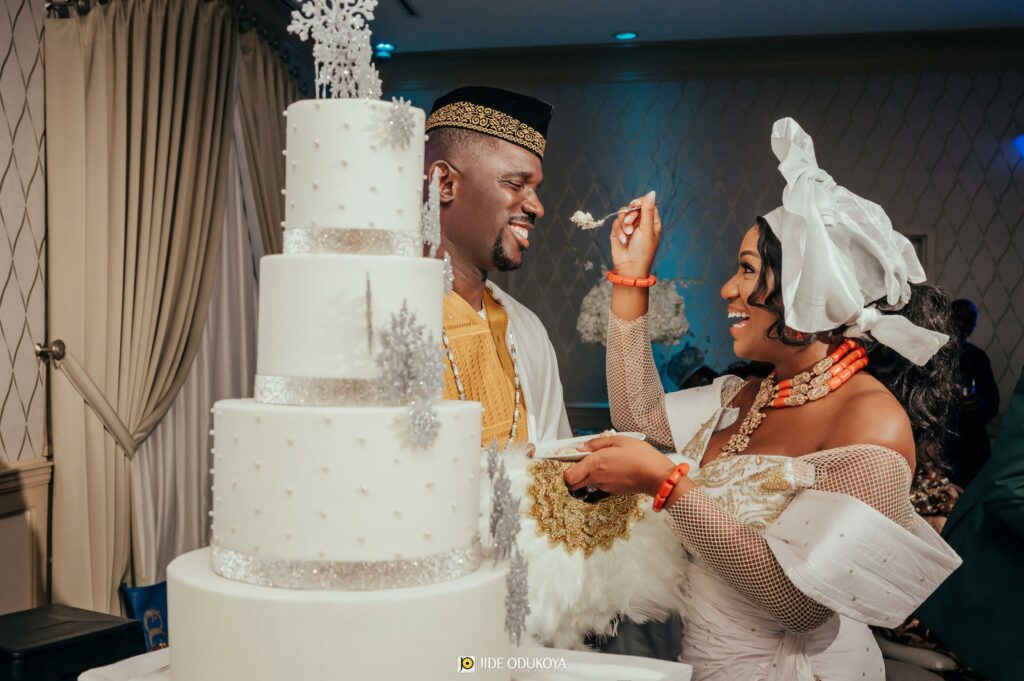
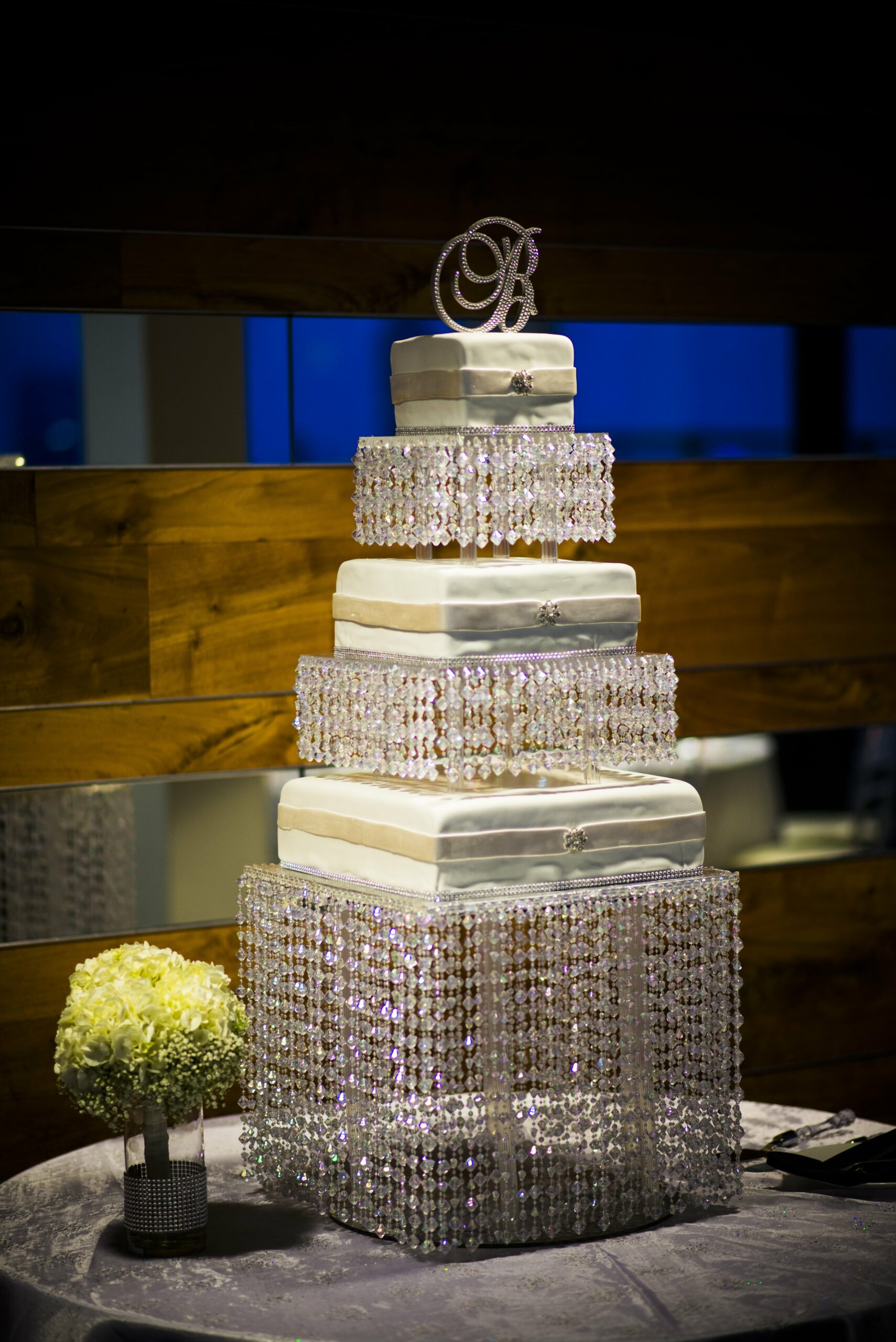
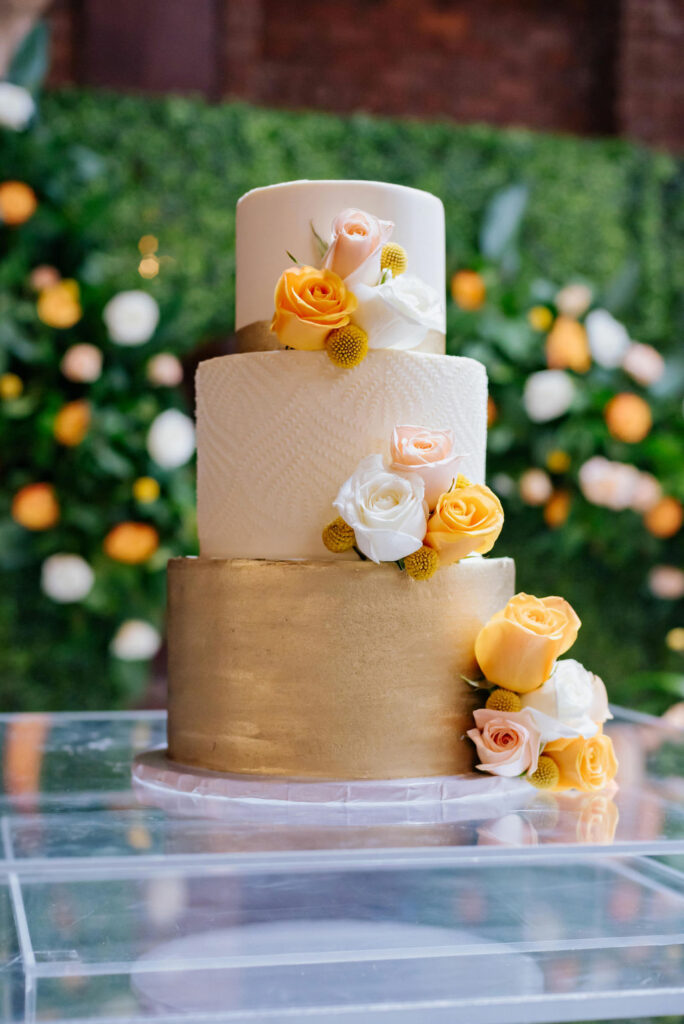
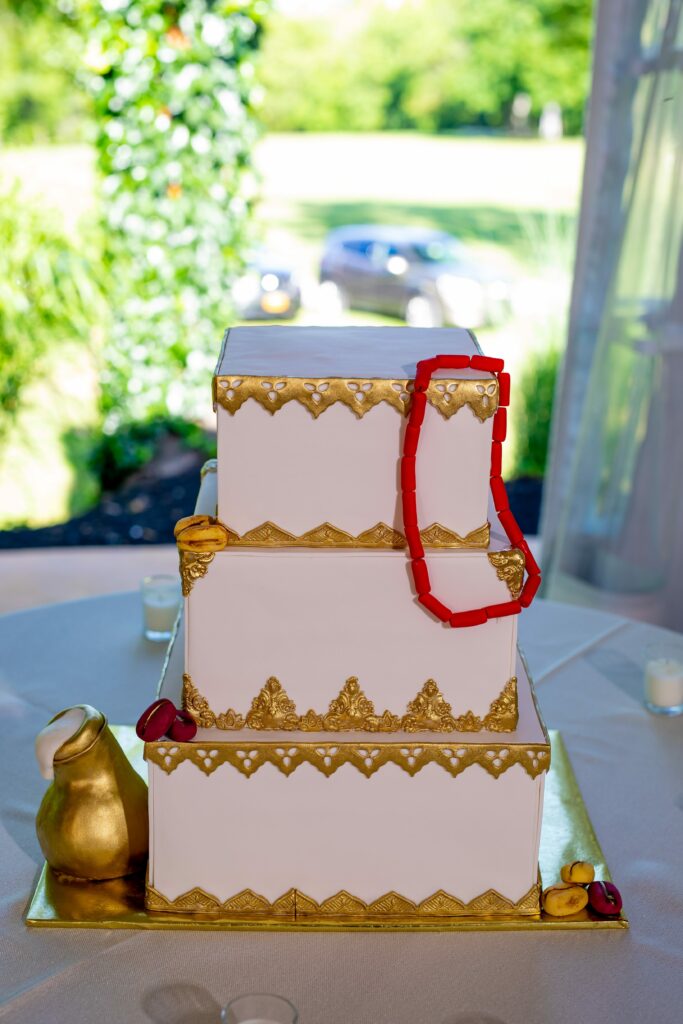
The Cake-Cutting Ceremony: Tradition and Celebration
The cake-cutting ceremony is a highlight of Nigerian weddings, filled with tradition and celebration. In traditional Yoruba weddings, the bride kneels to feed the groom the first piece of cake, and the groom will then feed his bride. This act symbolizes mutual respect and care. The ceremony often involves family members and friends, with a close family member “officiating” the cake cutting with a prayer. Modern variations include unique ways to share the cake with guests, making the moment even more memorable.
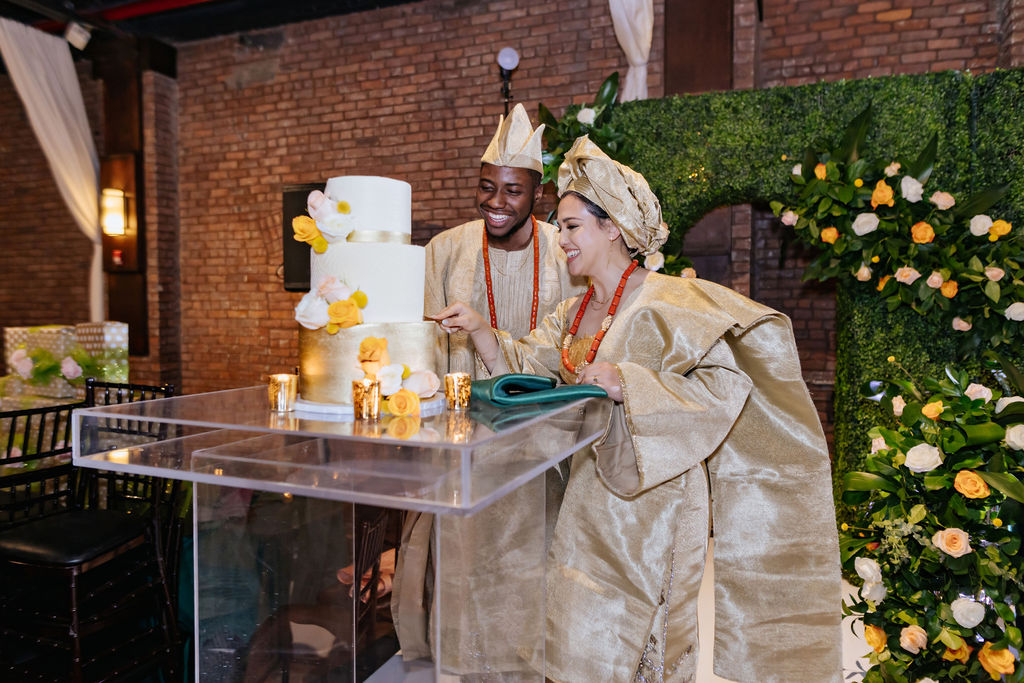
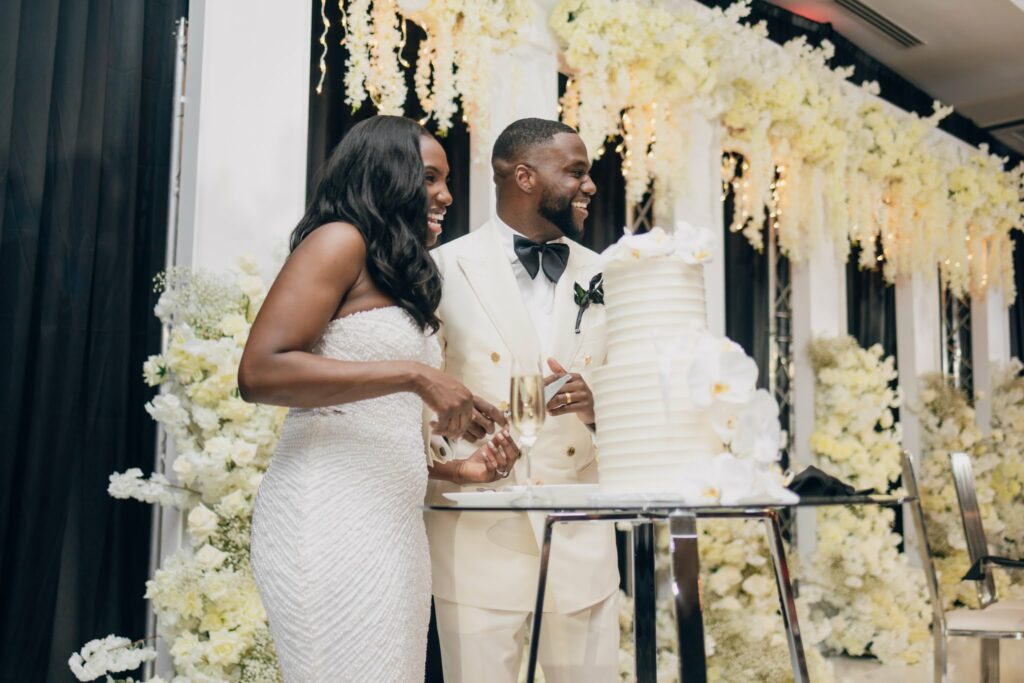
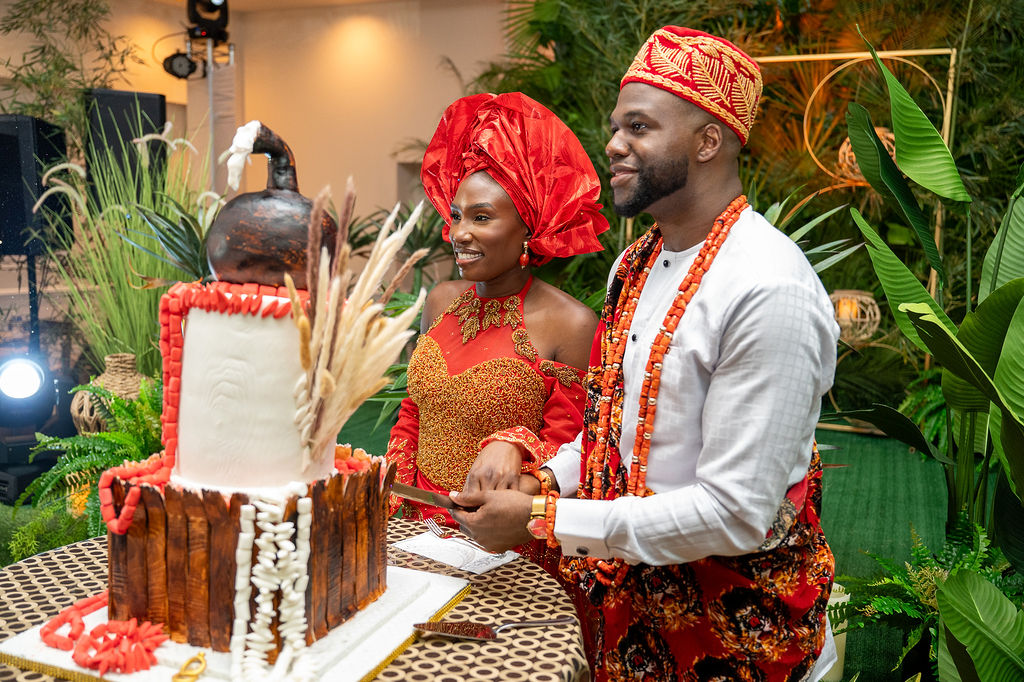
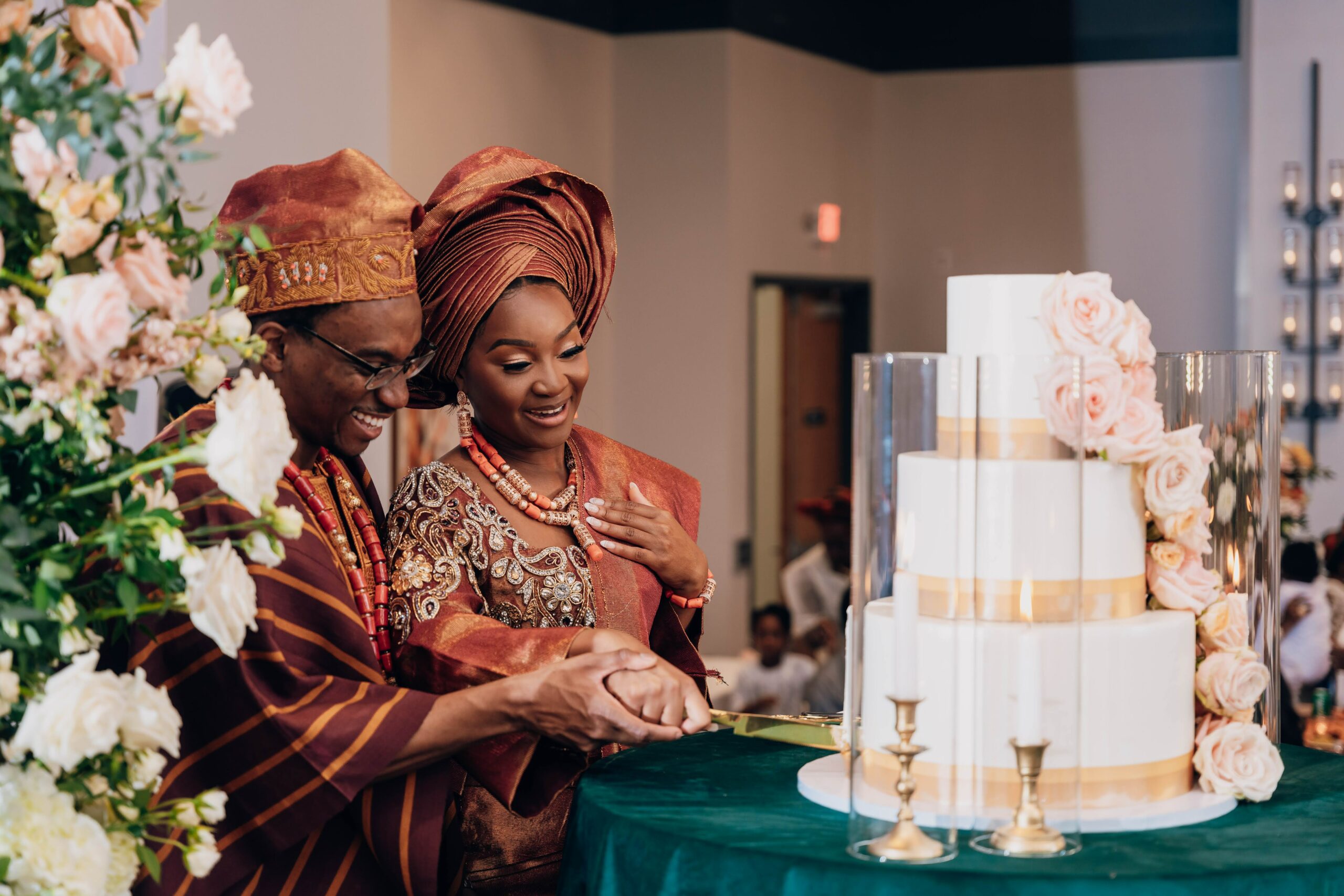
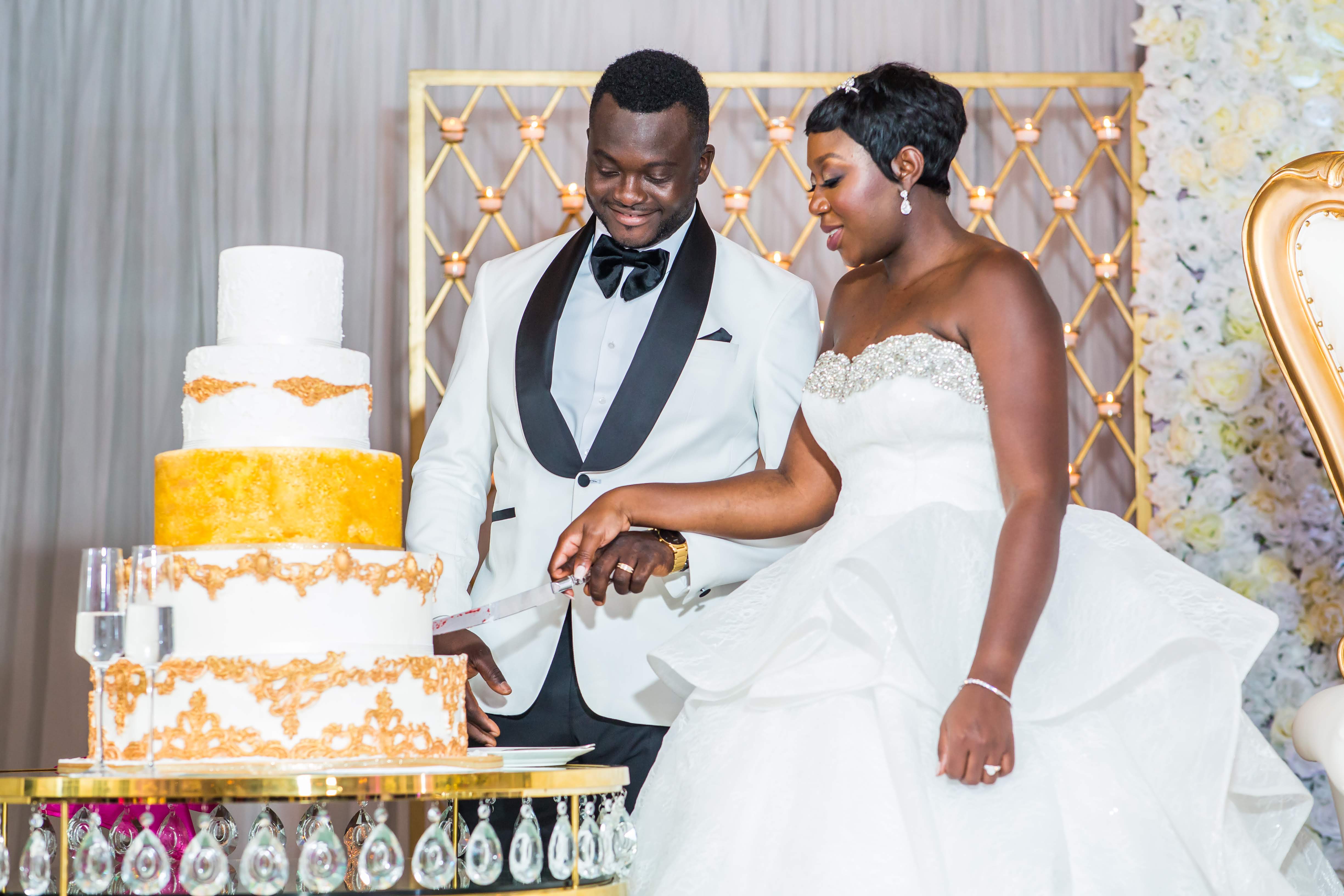
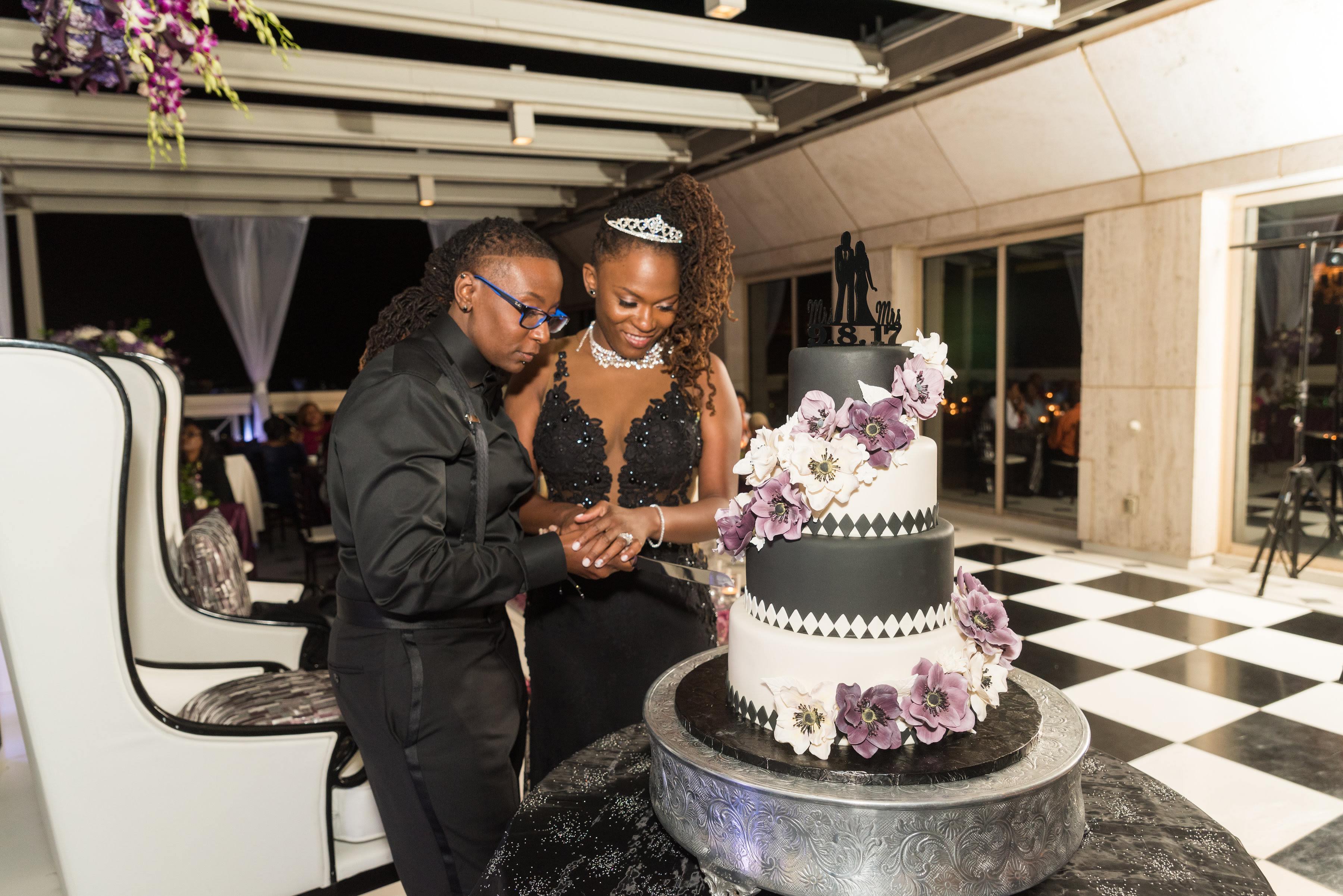
The Nigerian wedding cake is a cherished aspect of Nigerian wedding ceremony traditions, offering a moment of reflection, gratitude, and communal celebration. This tradition enriches the wedding experience by adding a spiritual dimension and reinforcing the bonds between the newlyweds and their community. By embracing and celebrating this practice, couples can honor their heritage and create meaningful memories with their loved ones.
Explore more about Nigerian wedding traditions by checking out our related blog posts. Learn more about topics such as the significance of Aso-ebi, the art of money spraying, and tips for planning a culturally rich wedding celebration.







